|
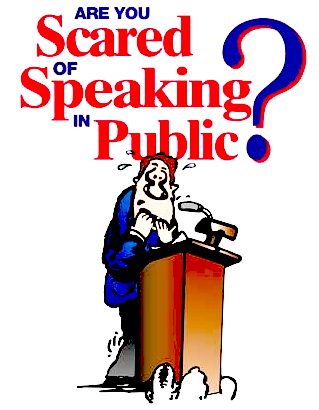
Click
on the above picture to see details of the 2015 event in Nevada
OVERVIEW
Toastmasters International (TI) is a
not for profit educational organization that operates clubs worldwide to
help members improve their communication, public speaking, and leadership skills. Through its thousands of member clubs, Toastmasters International offers a program of
projects designed to help people learn the arts of speaking, listening, and thinking.
A Toastmasters meeting is a learn-by-doing workshop in which participants hone their speaking and leadership skills in a
friendly, no-obligation, atmosphere. There is no instructor in a Toastmasters meeting.
Members evaluate one another’s presentations. Feedback from each other is a key part of the program’s success.
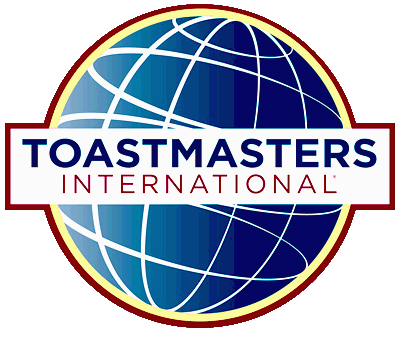
CONFERENCES Toastmasters International hosts an annual convention every August, in a different city each year. The international convention conducts business such as electing the international officers, hosts educational sessions for Toastmasters members, and also hosts the final rounds of Toastmasters' International Speech Contest. The international convention is also when Toastmasters presents its Golden Gavel award to a person "who has demonstrated outstanding ability exemplifying the principles of Toastmasters International, particularly in the field of communication and leadership." This award has been granted annually since 1959, and Toastmasters keeps a list of recipients on their website. In 2014, the annual convention will be held in the Malaysian capital of
Kuala
Lumpur, the first time the event has been held outside of North America, after an aborted attempt to host it in
Sydney, Australia in 2010.
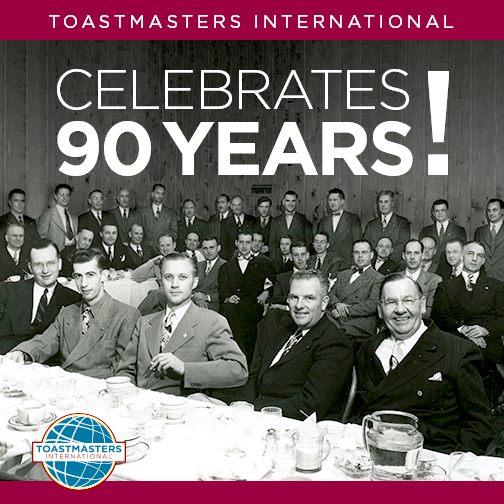
83rd
ANNUAL INTERNATIONAL CONVENTION - AGENDA
Wednesday,
August 20, 2014
| Event |
Time |
Location |
| Board
of Directors Briefing |
12
pm - 1:30 pm |
Plenary
Hall |
| First-timers
Gathering |
3
pm - 3:45 pm |
Grand
Ballroom 2 |
| Leading
and Learning Opportunities through Toastmasters |
2
pm - 2:45 pm |
Grand
Ballroom 1 |
| Opening
Ceremonies |
4
pm - 6 pm |
Exhibit
Hall 1 & 2 |
| Education
Keynote Session |
6
pm - 7 pm |
Exhibit
Hall 1 & 2 |
Toastmasters
Marketplace:
Candidates' Corner/Reception
Convention Store
Leadership Roles Booth
Exhibitors |
7
pm - 9:30 pm |
Conference
Hall 1 & 2 |
Thursday,
August 21, 2014
| Event |
Time |
Location |
| Hall
of Fame |
9
am - 11:30 am |
Exhibit
Hall 1 & 2 |
| Lunch
for Package Holders |
11:30
am - 12:30 pm |
Exhibit
Hall 4 |
| Education
Session 1 |
12:45
pm - 1:45 pm |
Grand
Ballroom 1 |
| Education
Session 2 |
12:45
pm - 1:45 pm |
Grand
Ballroom 2 |
| Education
Session 3 |
12:45
pm - 1:45 pm |
Plenary
Hall (1st floor) |
| Speech
Contest Semifinals |
2:30
pm - 4:00 pm
5:00 pm - 6:30 pm
7:30 pm - 9:00 pm |
Grand
Ballroom I
Grand Ballroom 2
Plenary Hall |
Toastmasters
Marketplace:
Candidates' Corner/Reception
Convention Store
Leadership Roles Booth
Exhibitors |
9
pm - 11 pm |
Conference
Hall 1 & 2 |
Friday,
August 22, 2014
| Event |
Time |
Location |
| Candidates'
Showcase |
8
am - 12 pm |
Plenary
Hall |
| Lunch
for Package Holders |
12
pm - 1:30 pm |
Exhibit
Hall 4 |
| Golden
Gavel |
1:30
pm - 3 pm |
Exhibit
Hall 1 & 2 |
| Education
Session |
4
pm - 5 pm |
Exhibit
Hall 1 & 2 |
| Education
Session |
5:15
pm - 6:15 pm |
Exhibit
Hall 1 & 2 |
Saturday,
August 23, 2014
| Event |
Time |
Location |
| World
Championship of Public Speaking |
9
am - 11:30 am |
Exhibit
Hall 1 & 2 |
| Lunch
for Package Holders |
11:30
am - 12:30 pm |
Exhibit
Hall 4 |
| Annual
Business Meeting |
12:30
pm - 3 pm |
Plenary
Hall |
| Region
Gatherings |
3:15
pm - 4:45 pm |
Various
Rooms |
| President's
Inauguration |
7
pm - 8 pm |
Plenary
Hall |
| President's
Inaugural Celebration |
8
pm - Midnight |
Exhibit
Hall 1 & 2 |
FEATURED
SPEAKERS
|
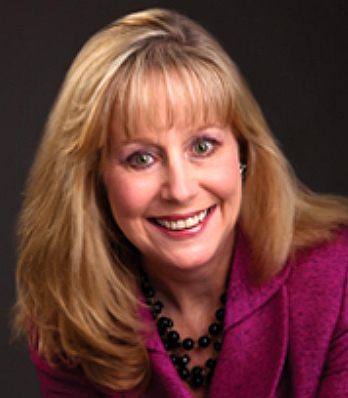
|
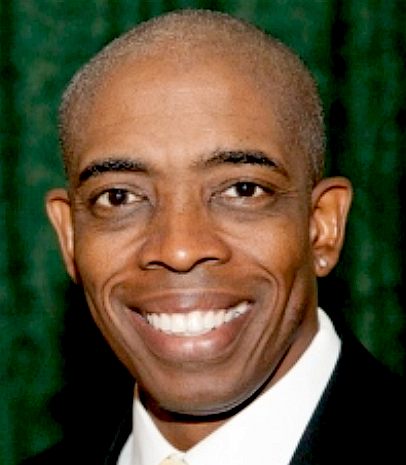
|
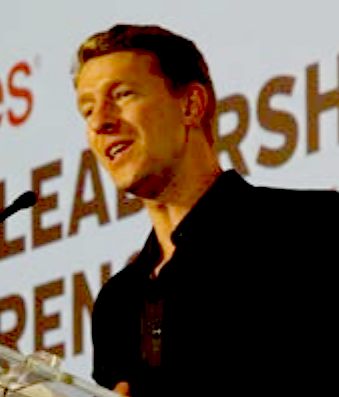
|
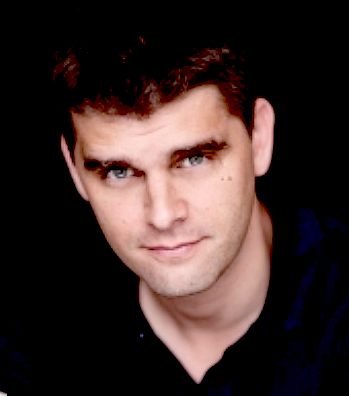
|
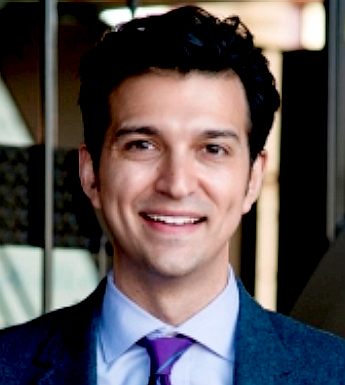
|
|
. |
. |
. |
. |
. |
|
Jana Barnhill,
DTM, was Toastmasters’ 2008–2009 International President—only the fourth woman to serve as the organization’s top officer. A Toastmaster for 24 years, Jana served as an international director from 2002–2004.
Jana has been recognized for her speaking skills as well, being a five-time winner of the District 44 International Speech
Contest. She belongs to three Toastmasters club in Lubbock, Texas,
and Albuquerque, New Mexico.
|
Mark Brown is the 1995 World Champion of Public Speaking, having defeated more than 20,000 contestants from 14 countries. He has dedicated his career to delivering
messages to people all over the world and is committed to continually inspiring people from all walks of life.
Mark delivers more than 200 presentations each year at conferences, conventions and corporate meetings.
Mark is a member of the Macon Toastmasters club, Georgia.
|
Douglas Kruger, ATMS, is an author, motivational speaker and presentation skills coach based in Johannesburg, South Africa. He won his district’s International Speech Contest a record five times, and he placed second in Toastmasters’ 2004 World Championship of Public Speaking.
Douglas has written three books on related to public speaking, expert positioning and leadership. His newest book, Own Your Industry: How to Position Yourself as an
Expert.
|
Florian Mueck joined Toastmasters in 2005. In
2009 he turned his passion into a successful profession under the FLORIAN MUECK
brand offering communication seminars, presentation coaching, keynote speeches to international companies.
Florian is the author of two books: The Seven Minute Star: Become a Great Speaker in 15 Simple Steps and PlusPlus: Patterns for Better
Communication. Florian, an ACG, is a member of Prestigious Speakers in Barcelona.
|
Rory Vaden is a speaker,
consultant and author based in Nashville, Tennessee. An expert
procrastinator, his message is that: “Success means doing the things we don't always want to do.”
Rory runs Southwestern Consulting, a multi-million dollar global research and training firm. With locations in Nashville, San Francisco and
London. His book, Take the Stairs: 7 Steps to Achieving True Success, is a Wall Street Journal and New York Times bestseller.
|
KUALA
LUMPUR Kuala Lumpur,
often abbreviated as K.L., is the federal capital and most populous city in Malaysia. The city covers an area of 243 km2 (94 sq mi) and has an estimated population of 1.6 million as of
2012. It is among the fastest growing metropolitan regions in the country, in terms of population and economy.
Kuala Lumpur has a tropical rainforest climate which is warm and sunny, along with abundant rainfall, especially during the northeast monsoon season from October to March. 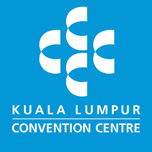
CONVENTION
CENTRE
The Kuala Lumpur Convention Centre is a convention and exhibition centre in Kuala Lumpur, Malaysia, and part of the Kuala Lumpur City Centre precinct, known as KLCC. Designed to be a "city within a city" this 40-hectare (99-acre) site includes the 50-acre (20 ha) KLCC Park and the PETRONAS Twin Towers. The Centre achieved HACCP certification in December 2006, and in February 2007 became the first convention centre in Asia to achieve 'Benchmarked' status by Green Globe, the global Benchmarking, Certification, and improvement system for sustainable travel &
tourism. Aquaria KLCC, a 60,000 square feet (5,600 m2) underwater park is located beneath the convention
center. The center will host the 127th IOC Session in 2015 where the IOC will elect the host city of the 2022 Winter
Olympics. 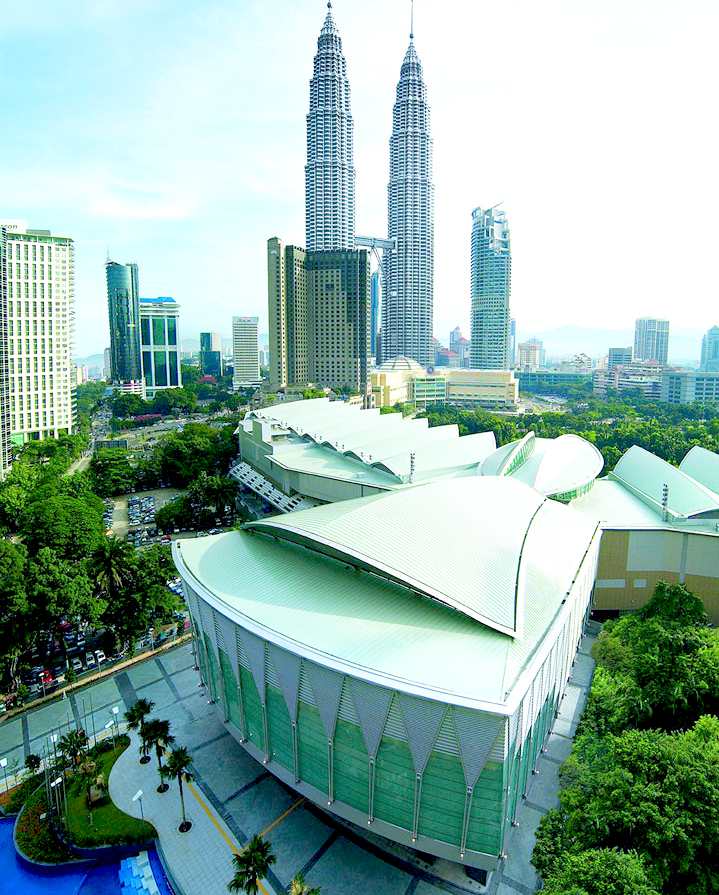 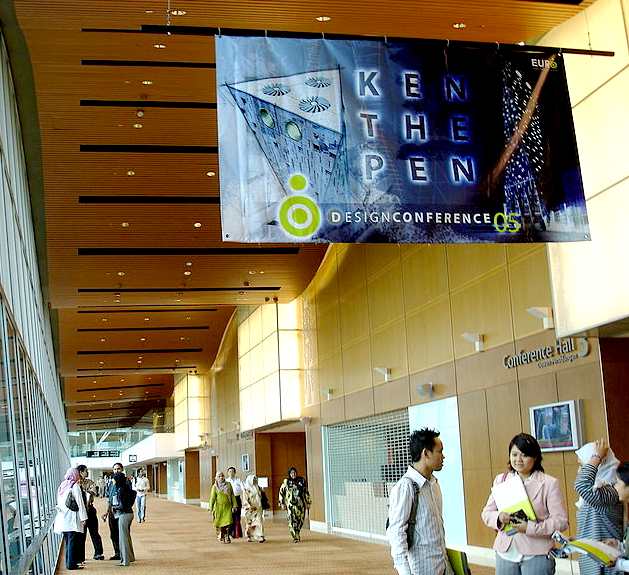
Kuala
Lumpur convention centre building cityscape and interior INTERNATIONAL
SPEECH CONTEST
The International Speech Contest is an annual Toastmasters contest that runs through all levels of the organization. Starting with club-level contests in the early months of the year, contestants proceed through higher levels until reaching the finals at the Toastmasters annual conference. Winners of this contest are awarded the title "World Champion of Public
Speaking." Competitors from Toastmasters clubs from all over the world enter this contest; however, members of clubs outside of districts are ineligible to participate.
Participants in the International Speech Contest are required to have completed a minimum of six speech projects toward their Competent Communicator award before the club contest, and must create substantially original speeches for the final International level competition. Speakers who plagiarize or otherwise make significant use of quotes in a contest speech are to be disqualified.
CONTESTS
Each district runs an International Speech contest, plus up to three other contests out of a list of four (Humorous, Tall Tales, Table Topics, and Evaluation). All contest are governed by an official speech contest rulebook, updated each calendar year by Toastmasters International.
Competitions allow members to practice their communication skills under demanding conditions, view the efforts of skilled members of other clubs, and provide entertainment during business meetings or dinner functions. The winner of each of the four main club contests proceeds to the next level of competition—an area contest; the winner of the area contest goes on to the division contest; the winner of the division contest goes on to the district contest. Most contests stop at the district level. The one exception is the International speech contest, which continues to the semi-finals, with those winners competing in the World Championship of Public Speaking (WCPS).
Contest speeches are timed, with the timings for the five official contests set out by Toastmasters International. Contestants whose speeches are under time or over time by more than thirty seconds are disqualified (the impromptu speech contest does not allow an under-time grace period) ; however, in case of a technical problem with the timing equipment or lights, contestants are given an additional thirty seconds before being disqualified.
Each contest has its own rules regarding content and contestant evaluation. In the International Speech Contest, the contestant selects the subject and type of speech to give, and the
speech is judged on the overall presentation using a point system for various categories of skills. In a Humorous Speech Contest the speeches are judged using a different set of categories, which include how well humor was used. In a Tall Tales Contest, judging is based on speaking skills and use of exaggeration for humorous effect. In an Evaluation Contest, a test speaker (sometimes called a model speaker or a target speaker) gives a speech, and then all of the contestants leave the room, returning one at a time to evaluate the same speech. In the Table Topics Contest, contestants are led into the room one at a time and presented with a topic they have not previously been informed of and are judged on how well they respond; each contestant is given the same topic.
Judges - who are to be kept anonymous when practical - evaluate contestants with a rating system on a wide range of criteria based on the speech type. These rating scores are summed into a single score. The score is used to define a ranking of the top three candidates. A Borda count is used to determine the winner from the rankings. Each contest has a special tie-breaking judge who ranks all candidates; this ranked list is used to break any ties in the contest.
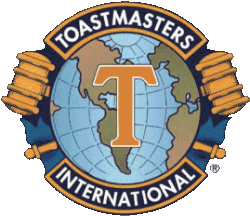
FOUNDATION
- RALPH SMEDLEY The organization grew out of a single club, Smedley Chapter One Club, which would become the first Toastmasters club. It was founded by Ralph C. Smedley on October 22, 1924, at the YMCA in Santa Ana, California, United States. Toastmasters International was incorporated under California law on December 19, 1932. Throughout its history, Toastmasters has served over four million people, and today
(2014) the organization serves over 292,000 members in 122 countries, through its over 14,350 member clubs. In order to save the time consumed in replying to many letters and enquiries, Smedley prepared a "Manual of Instructions" and "Ten Lessons in Public Speaking", which he mimeographed and bound in paper covers. On October 25, 1928, he obtained copyrights on his publications and trademarked the name "Toastmasters Club".
The new association needed a name, and because a club now existed in British Columbia, Canada, they chose to call it Toastmasters International. There were about 30 clubs when the association was formed in 1930, and in 1932, Toastmasters International was incorporated as a California Non-profit corporation. Smedley took on the positions of Secretary and Editor of the new association, while continuing his YMCA work.
He resigned as YMCA Secretary in 1941 to devote more time to Toastmasters International. Through the war years he operated the organization out of a small office. When the war ended, a new Secretary, Ted Blanding, replaced Smedley, who remained active as Educational Director for the rest of his life, as well as a permanent member of the Board of Directors. In 1950, Smedley wrote "Beyond Basic Training". At the Toastmasters International convention at Atlanta, Georgia, August 18–20, 1960, Ralph C. Smedley displayed a model of the then-new Toastmasters International Headquarters in Santa Ana, California.
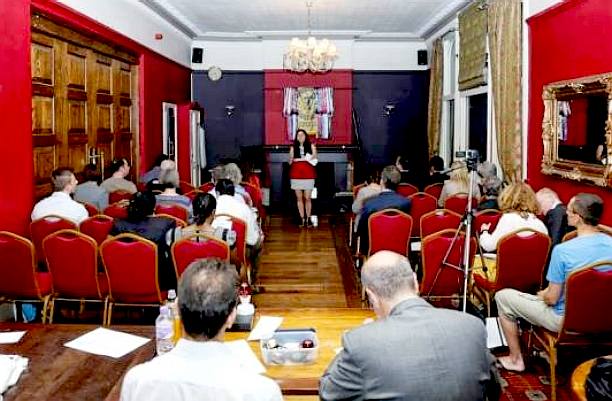 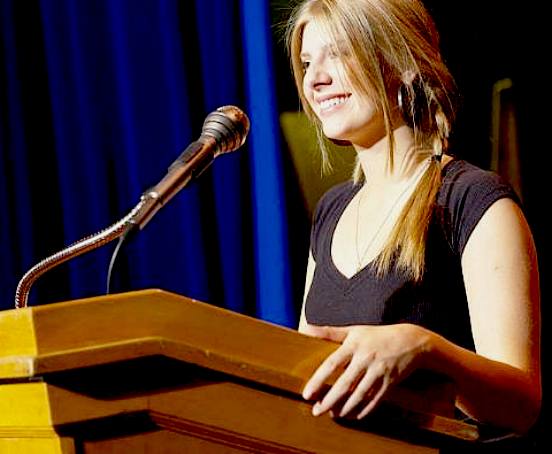
Typical
Toastmasters meeting hall (London) and podium speaker (Ireland)
MEMBERSHIP
As of 2013, there are more than 292,000 members and over 14,350 clubs in 122 countries. Membership in the US grew by 3.3% in 2012-2013 and continues to grow rapidly in many other nations. Toastmasters members belong to local clubs, which generally have between 10 and 40 members, with 20 members being a typical size. The local clubs meet on a regular basis for members to practice various skills useful in public speaking, including giving speeches, speaking extemporaneously, listening, and providing each other with feedback and evaluation. Some clubs meet monthly, some meet twice a month, and some meet weekly.
Membership is open to all people ages 18 and above wishing to improve their communications and leadership skills. Youths interested in these skills are served through the Youth Leadership and Gavel Club programs.
Toastmasters International has a policy of non-discrimination based on age (except those persons under 18 years of age), race, color, creed, gender, national or ethnic origin, sexual orientation, or physical or mental disability. Although Toastmasters was initially formed as a male-only organization, membership was opened to women in August 1973. Certain clubs (referred to as "closed clubs" or "in-house clubs") organized within businesses restrict membership to people in the organization; this is the only restriction on membership permitted by the international organization.
Gavel Clubs (Toastmasters-sponsored groups for teenagers, prisoners, or other groups who may be ineligible for membership in Toastmasters International) may be set up upon request at schools and institutions to provide them with the Toastmasters experience. Other than the mix of membership and that no official Toastmasters titles such as CC, CL, AC, etc., will be awarded, the benefit received from a Gavel Club is essentially the same as that of a Toastmasters club.
Toastmasters also has a Youth Leadership program, which is an eight-session program that introduces school-age children to the art of public speaking. These Youth Leadership programs are conducted by members of Toastmaster Clubs in the local area. They allow active members who put in effort to gain confidence and expertise in the art of public speaking.
Some clubs are advanced clubs, with varying membership requirements. The most common is requiring members to maintain a dual membership with their home (non-advanced) club and to have earned a Competent Communicator (CC) award, but other examples include requiring members to have an Advanced Communicator (AC) or Distinguished Toastmaster (DTM) award, be a current district leader, have a strong interest in professional speaking, a specific interest in humorous speaking, etc.
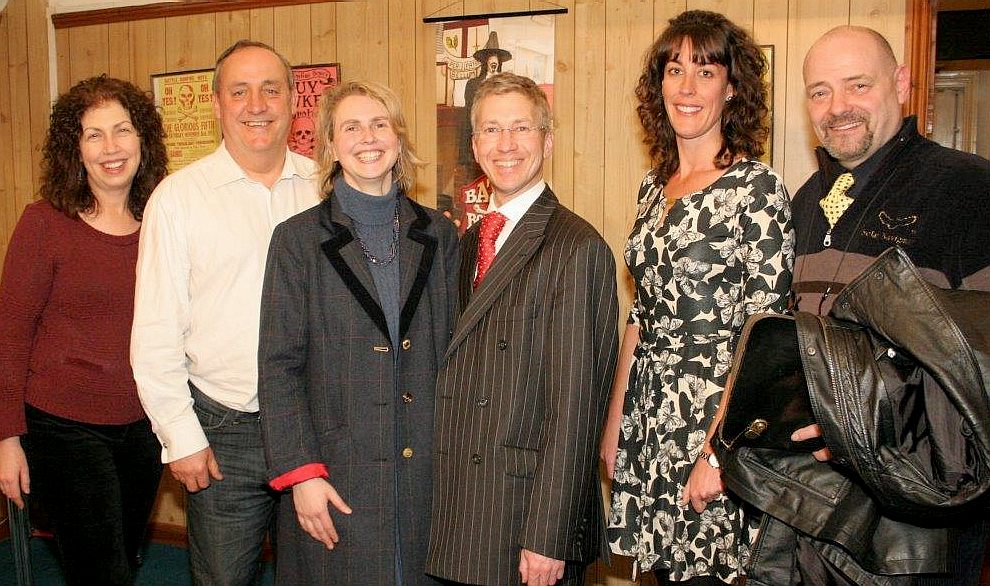 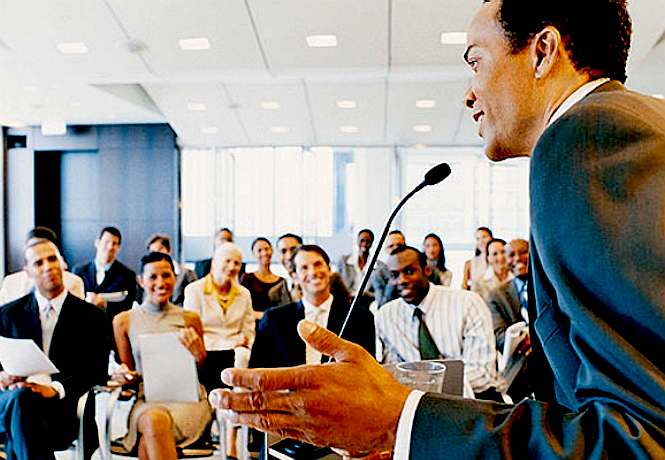
Friendly
local clubs provide encouragement to speakers
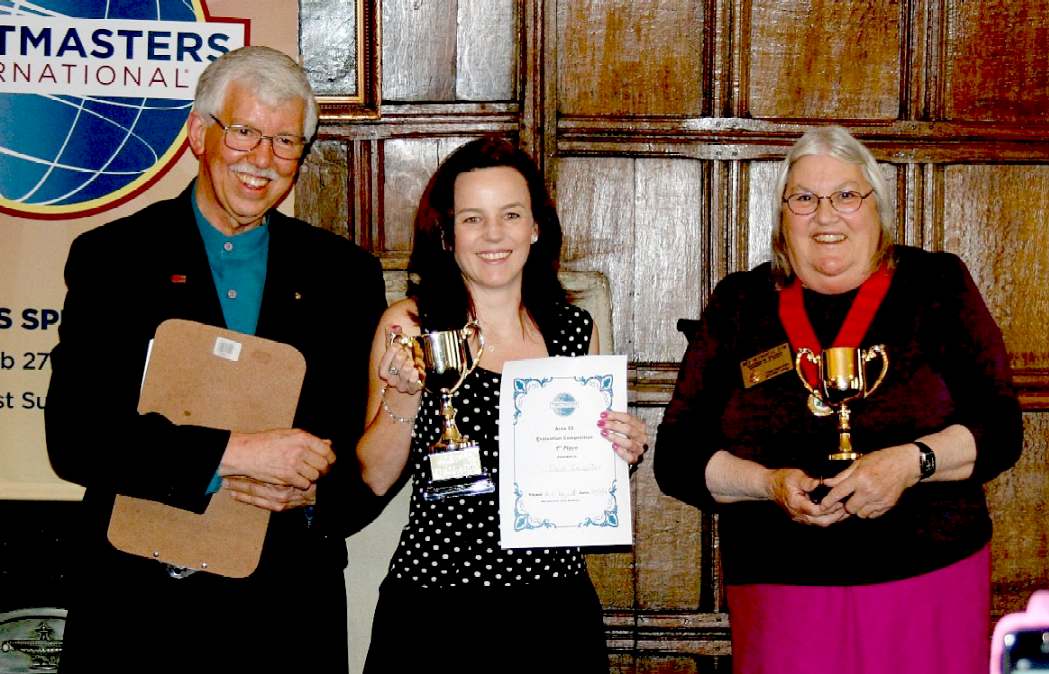
Area
champion evaluator Claire Carpenter accepts her prize from David Sutcliffe
and Meg Heyworth, Lewes Toastmasters Club
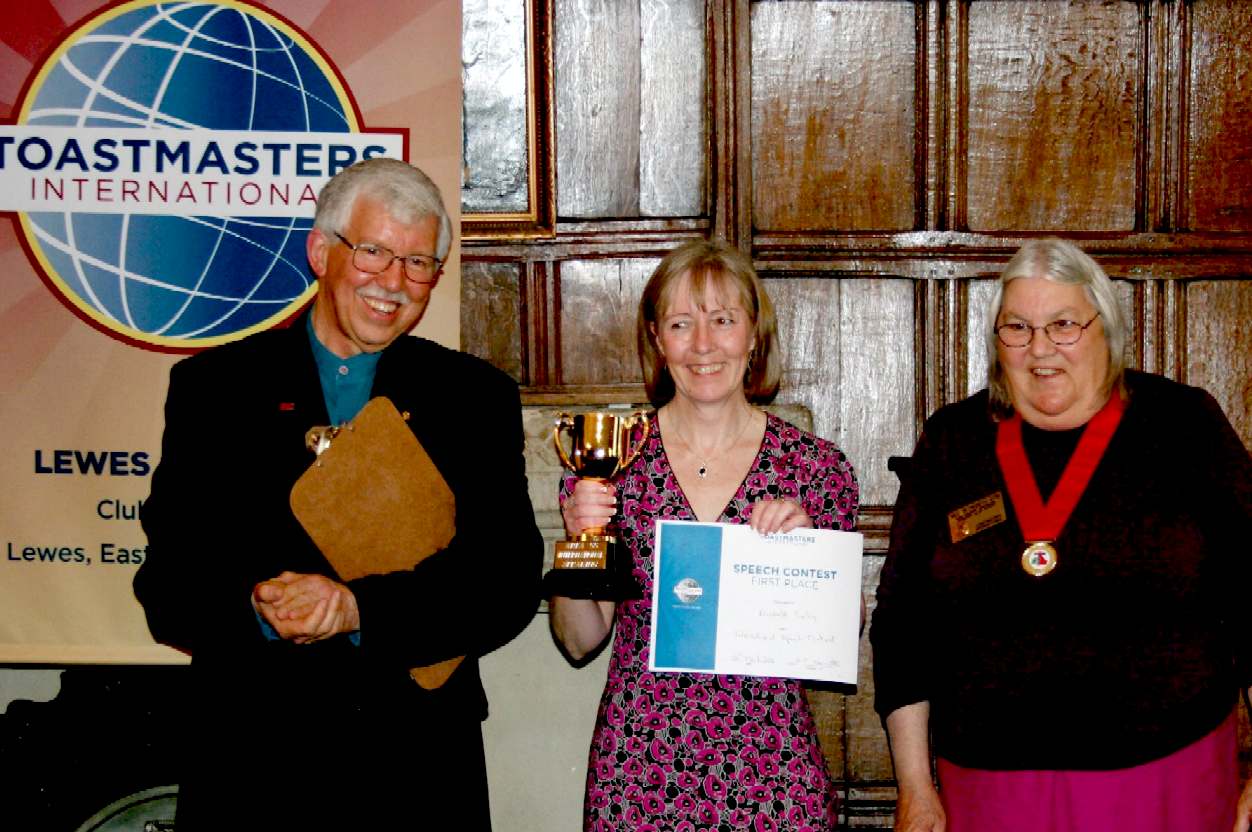
David
Sutcliffe, Elizabeth Toohig champion Brighton Club speaker 2014 (Area
Winner UK) and Meg Heyworth - Lewes Toastmasters Club
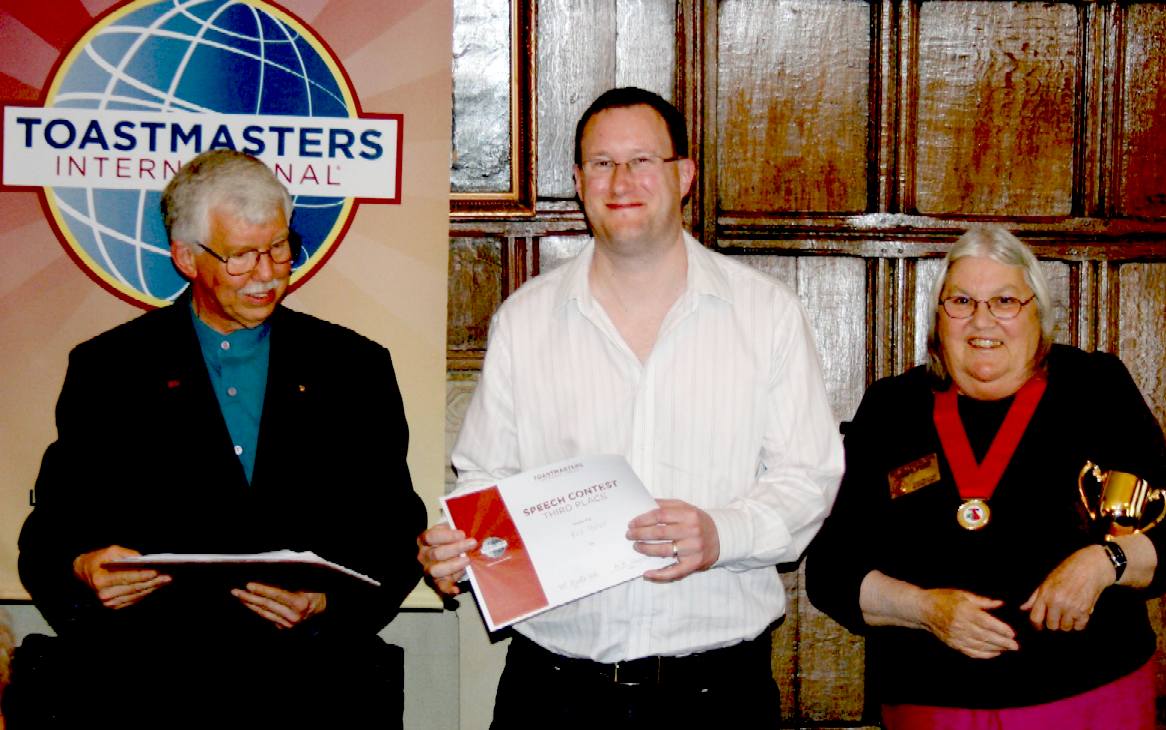
David
Sutcliffe and Meg Heyworth present Phil Bowler with his runners up (3rd
place) certificate - Lewes Toastmasters Club 29 March 2014 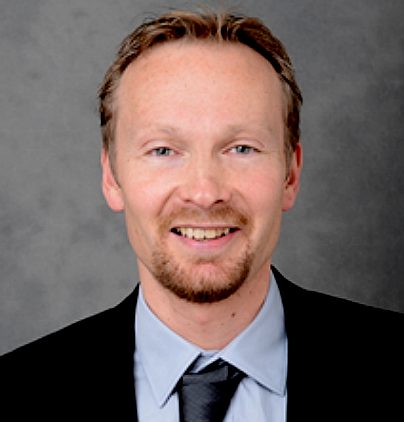
The International Tour Management Institute (ITMI), the
training and certification program for tour directors and guides announced that Barnaby
Davies (recent graduate) is committed to raising awareness for the global crime of human trafficking, by challenging a Guinness record. “Joan Keddell and Amy Noble's presentation about human trafficking has really stuck with me since the December class,”
Barnaby is quoted as saying. “Well, now I have an opportunity to give this issue some exposure by challenging journalist Sarah Warwick’s Guinness Book record of six cities in 24 hours.”
In order to satisfy Guinness officials, he must stop in each of the cities themselves, not just at a nearby airport, making this a difficult logistical challenge and a test of endurance.
Barnaby’s itinerary on April 15, 2014 is a follows:
Leaving London, UK St. Pancras rail station at 12:25pm;
Arriving Paris, France Nord rail station at 15:53;
Leaving Paris Nord at 16:52;
Arriving Brussels, Belgium Midi at 18:17;
Leaving Brussels Midi rail station at 18:48,
Arriving Brussels airport 19:09;
Leaving Brussels on flight to Ljubljana, Slovania 20:45;
Arriving Ljubljana 22:25, taking public bus to Ljubljana, train station;
Leaving Ljubljana for Vienna, Austria on overnight train at 23:55;
Leaving Vienna main station (Hauptbahnhof) at 08:21 on April 16;
Arriving Bratislava, Slovakia HL.S station at 09:27;
Leaving Bratislava HL.S station at 09:53;
Arriving at Budapest, Hungary Keleti P station at 11.35 UK Time.
Total time 23 hours 10 minutes.
For more information about ITMI or Barnaby’s challenge contact Annemarie Osborne
Annemarie.Osborne@gmail.com
(800) 442-4864 (415) 957-9489 or visit http://www.itmisf.com Barnaby is an experienced tour crew member who has worked with many celebrities including
Madonna and Metallica. He completed
Beyonce's Mrs. Carter World Tour in March 2014. In December 2013, he became an ITMI certified tour director.
Email: barnaby@roadadventures.co.uk
CLUB MEETINGS and ROLES
Every Toastmasters club meets on a regular basis, at least 12 times a year. Most clubs meet once a week or twice a month, usually for 1 to 2.5 hours, depending on the club. Each meeting has a structured format, with various members participating in the different roles in the meetings. The meeting is run by a Toastmaster of the Day (TMOD or TME for Toastmaster of the Evening) with the help of Table Topics Master and General Evaluator.
There are three basic parts to the Toastmasters meeting: the prepared speeches, table topics, and evaluations. In the prepared speaking portion of the meeting, several Toastmasters will give a prepared presentation or speech before the group. Speeches are usually designed to meet the requirements of one of the projects in the communication manuals. "Table topics" is an extemporaneous speaking exercise where the speaker speaks "off the cuff"; that is, the speaker responds to a question or topic that is not known beforehand. The Table Topics Master presents the topic, calls on an individual, and then that individual has 1 to 2 minutes to respond.
The evaluation session is where feedback is provided to all members, including the speakers. The evaluation session is headed by a General Evaluator, who calls on individual speech evaluators to give a 2- to 3-minute evaluation of an earlier presentation. After the evaluators have finished giving their evaluations, the General Evaluator calls for the helper reports:
1.
There is a Grammarian who notes mispronunciations and mistakes in grammar, or word repetition (e.g. "I did ... I did"), sometimes called "double clutching." In some clubs, the Grammarian will also point out positive uses of language, including nice turns of phrase, clever formulations, and especially poetic or otherwise
exceptional uses of
language.
2. An Ah-Counter keeps track of audible pauses such as "ah," "er," "um," "well," and "you know". These are also called embolalia, which are naturally occurring pauses or fillers in the flow of a speech. In some clubs, the role of the Grammarian and the Ah-Counter will be combined.
3.
The meeting's Timer reports how much time each speaker, table topics responder, and evaluator took to give his or her presentation. Then the General Evaluator, or Master Evaluator, gives his or her overall evaluation of the meeting and makes recommendations of ways to improve future meetings. Some clubs have Table Topics Evaluators who evaluate members' responses to the table topics; for those that do not, the General Evaluator frequently fills that role. In addition, some advanced clubs have a 'round robin' evaluation for the speakers. In addition to the designated evaluator giving an evaluation recorded in the member's manual, the other members around the room are asked for additional comments on the presentation. In many clubs with longer meetings, particularly in Australia, the evaluation session is split up and the various parts are located closer to the action being evaluated. For example, Table Topics may be evaluated by 'Table Topics Evaluators' once the 'Table Topics Leader' has asked the assigned number of question and the speeches in a Prepared Speech session may be evaluated immediately the last speech has finished and the Toastmaster has called on the Timer to report the speeches' times. The General Evaluator in this scheme of things speaks only for himself or herself, with the Chairman introducing assignments throughout the meeting.
This way of organizing meetings allows for multiple Prepared Speech and Table Topics sessions in one meeting. It is not unknown for 8 Prepared Speeches to be delivered in one night in up to 4 Prepared Speech sessions: more people are involved and the number of spectators is reduced. The various parts of the meeting are seen as blocks and can be rearranged so that each meeting is not quite the same as the one before or the one after.
There are sometimes other roles in the program, depending on the club. For example, there may be an Invocator who gives an invocation or inspirational opener; a Humor Master, Jokemaster, or Raconteur who tells a funny story or jokes; a Wordmaster or Lexicologist who presents a "word of the day" to help the members increase their vocabulary (with the intention that members use the word of the day in their presentations); a Listener (also called a Quizmaster) who asks questions after the presentations to make sure everyone was listening; and/or an Award Presenter, who presents awards at the end of the meeting. Some clubs also have an Educational Presentation in which a speaker presents an educational aspect of Toastmasters. In many clubs, members vote for the Best Speaker, Best Table Topics Speaker, and Best Evaluator of the meeting. This "Best [whatever]" usually gets a ribbon to keep or a traveling trophy to take with him or her until the next meeting, when he or she will have to present it to the next winner. There may also be a Vote Counter, who collects the attendants' votes for Table Topic Speaker, (Rehearsed) Speaker, Evaluator, and Program Manager. The Vote Counter may also collect written evaluations to be given to the persons who gave rehearsed speeches. German clubs have introduced the Pub Master which is responsible to reserve a table and lead the way to a restaurant or pub for an informal meeting after the toastmaster session.
The order of the program varies from club to club and country to country. Many noon-time clubs and other clubs that are constrained by time do their prepared speeches first, followed by Table Topics, followed by evaluations. This is the standard program for clubs in South Africa. Dinner clubs in the United States tend to do Table Topics first, and then everyone sits back and relaxes for the after-dinner prepared speeches. Alternatively, some clubs that are very time-conscious do prepared speeches first, then evaluations, saving Table Topics for last.
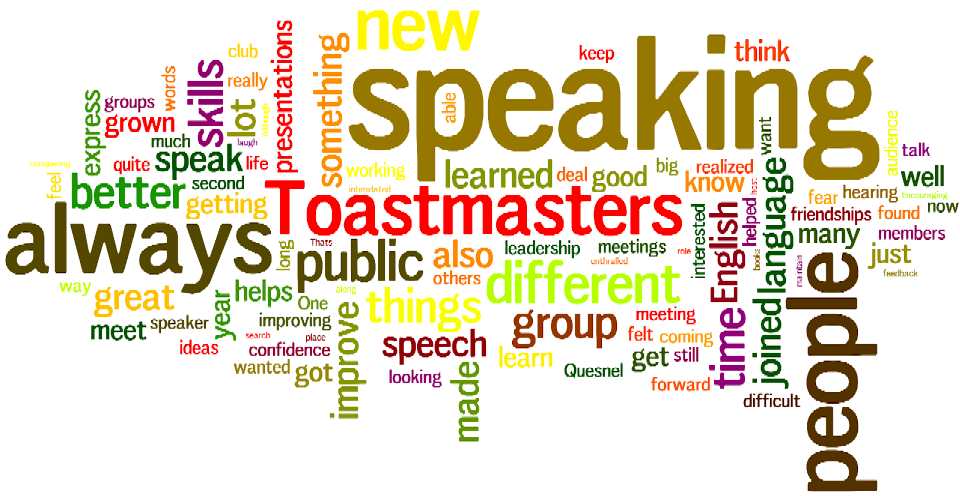
OFFICER TRAINING
In addition to club meetings, Toastmasters offers training opportunities through events organized at the district and international levels. Districts are responsible for hosting a minimum of four events each year: club officer training in June–August and December–February, and two district conferences in the spring and fall.

CONTACTS
|
Phone
and Fax
Phone:
949-858-8255
6 a.m. to 7 p.m. Pacific Time, Monday-Friday, excluding holidays
Automated system:
949-835-1300
Fax: 949-858-1207
|
Mailing
Address
Toastmasters International
P.O. Box 9052
Mission Viejo, CA
92690-9052
USA
|




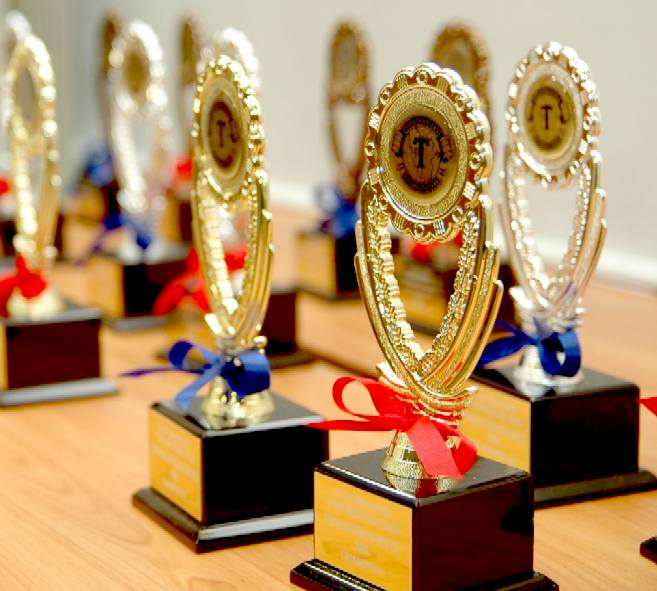
Trophies
are presented in recognition of progress
LINKS
& REFERENCE
http://cogito.ie/ http://www.1stlondontoastmasters.com/ http://www.athenians.co.uk/ http://www.youtube.com/user/Toastmasters http://www.thelondonspeaker.com/ http://www.toastmasters.org/ http://en.wikipedia.org/wiki/Toastmasters_International http://en.wikipedia.org/wiki/Kuala_Lumpur
http://www.klccconventioncentre.com/
Society
Speakers
Angel
Speakers
Bank
Speakers
Berkeley
Square Speakers
Bloomsbury
Speakers
Covent
Garden Speakers
Broadgate
Speakers
Canary
Wharf Communicators
City
of London Speakers
Early
Bird Speakers
Excalibur
Speakers
Grosvenor
Square Speakers
Holborn
Speakers
London
Athenians
London
Business School
London
Cardinals
London
Communicators
London
Corinthians
London
Olympians
MLP
London Bridge Toastmasters
Northern
Lights Speakers
Polish
Your Polish
Riverside
Communicators
St
Pauls Speakers
Trojan
Speakers
West
London Speakers
Women
in Banking and Finance
Russian
English Speakers http://barnabywrites.com/2014/04/02/human-trafficking-2014/
|

























